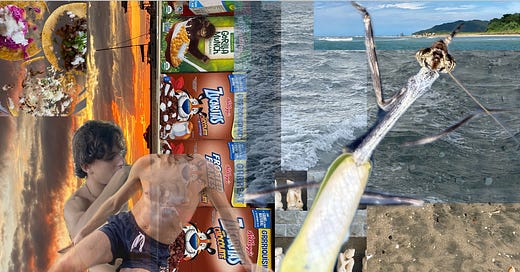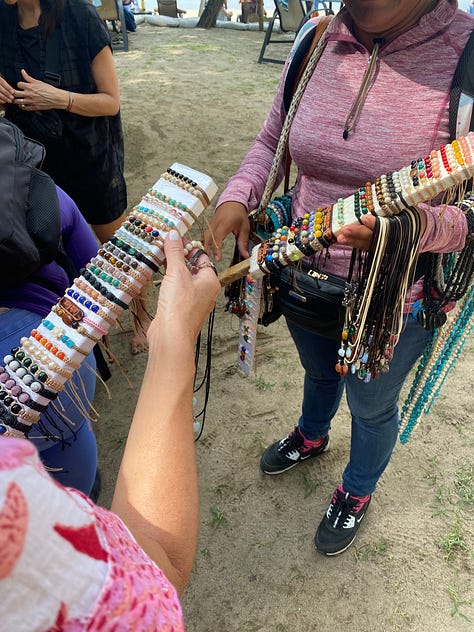

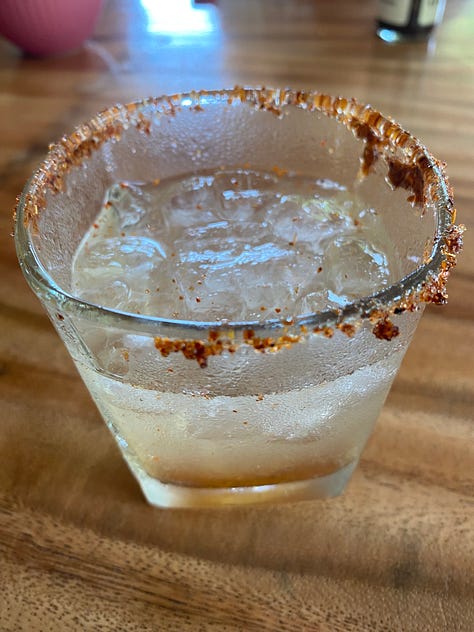
Well hello there -
It is hard to believe we are knee-deep in the holiday season, Thanksgiving has already come and gone. My evening yesterday was spent hauling boxes of Christmas decorations from the basement to begin the annual event of uncovering trinkets lost in my memory and seeing if they ignite that special spark of, “Oh wow, I love this one,” or the “My god I totally forgot we had this,” and the most exciting, “This thing is so old it’s time for it to go.” This year for Thanksgiving, my family, who in many ways are traditionalists, decided to pack their bags and head to Costa Rica for fried plantain, coconut shrimp, and perfectly sour margaritas, leaving behind the Colorado winter, Alison Roman’s delicious stuffing recipe, and all wool sweaters. Might I say it was a most radically beautiful decision – the gratitude I felt on Thanksgiving morning as I sat with my family sharing stories told thousands of times before while sipping thick black coffee and looking out toward the ocean below, all made me consider what it means to be old and to be young, to have tradition and to start anew, to know oneself and to surrender completely to the possibility of being changed.
At the dining table on Thanksgiving night sat three generations of my family. My grandfather at the head, my father and his brothers at each edge, and their children scattered throughout, all of us observing my grandfather as he rose for a toast. In it, he spoke of love, of making new memories, and of gratitude, of course. In many ways, the function of our Thanksgiving dinner was identical to years past, only now we sat near crashing waves instead of falling snow. Everything about this Thanksgiving felt new, but in reflection, so much of it was the same. In truth, it does not take much to feel as though tradition has been abandoned. Whether it be a change of scenery, a death in the family, or new food on the plate, newness in moments solidified by their sameness is stark, undeniable, and profound.


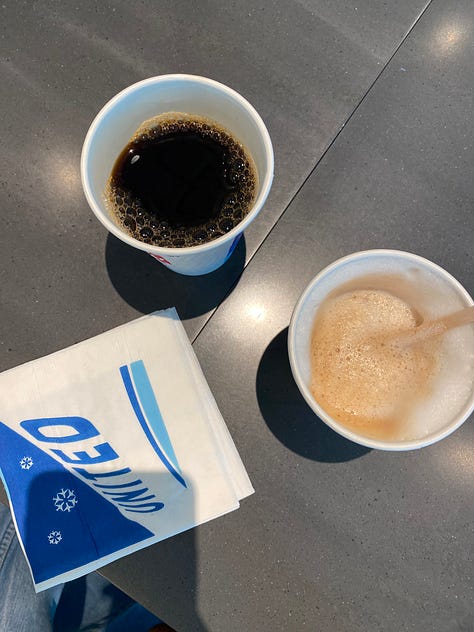
As I sat on the floor of my parent’s bedroom surrounded by stacks of my father’s pants, organizing his closet and discarding items that looked old, stained, or worn out, there was a deep unknowingness buried within me as we decided what to donate and what to keep. The task is quite simple at a glance, my father wants new, fresh, perfect looking pants to wear to work, and I too want that for him. But what about the old, ripped, stained, ones? Or the now too-short, too-tight pair he remembers buying almost three decades ago when he started his job? Is there a place for them, too? In these moments we choose the new over the old, we sacrifice memory and nostalgia for productivity and professionalism. And that is perfectly alright. But how oldness and wornness in this very moment were the feelings and associations I attempted to avoid while cleaning out his closet, can become the very words I use to describe my most cherished and regarded items, histories, and perspectives, the old that was once weak now full of power.
In the paradigm of young and old as it relates to one’s identity, I find myself in a constant state of becoming wherein I am told to explore and to play because of my youth. Yet it is in this playing where I attempt to build parts of myself in the concrete, characteristics that make me, me. I have somehow chosen along the way that my hair is worn long, my coffee is sipped black, my jeans are never skinny, and my t-shirts are almost always tight. I don’t lift weights or snowboard, I am not a camper, I hate flying, and I never wear my glasses in public. But why? How have the moments of trial become solidified facets of my identity? When did the new become the old? How have my explorations turned into a tradition, and why does change, in a life full of constant beginnings, feel so uncomfortable?


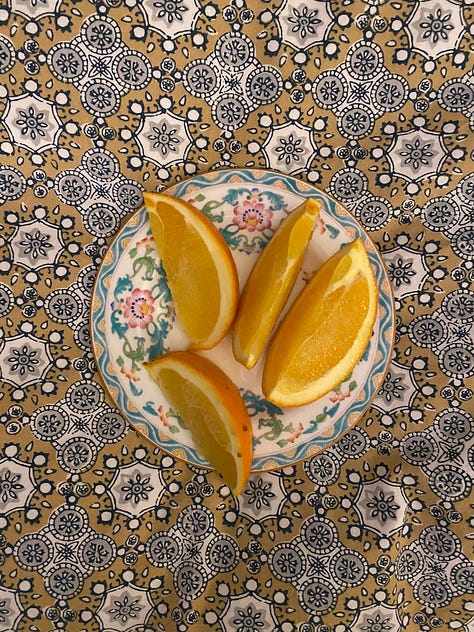
Umberto Eco, an Italian philosopher and medieval historian, has been of deep interest and fascination to me as of late, but I am not entirely sure why. Maybe it is because he believed in the power of a library filled with books not yet read, or that his expertise is in fields I know very little of, or maybe it is because his personal library rivals that of any private literary collection, anywhere. In an essay titled “On the Shoulders of Giants,” a text based on a lecture Eco gave at the Milanesiana Festival in Milan, Eco describes the ways in which the young and the old are in constant battle…
“...The innovators are always opposed by the laudatores temporis acti (praisers of times past). And Frequently, praise for the new and a breach with the past arises precisely as a reaction to rampant conservatism…Horace (Epistles II, 1,75 ff.) reminds us that the advocates of the new irritated those who praised times past. Instead of “modern,” he uses the adverb nuper to say that he resents it when a book is deemed unworthy not for lack of elegance sed quia nuper (but because it has only been written lately). We encounter that same attitude from those today who, on critiquing a young writer, complain that novels are no longer what they used to be.” — Eco, 2001.
The old and the new battle for legitimacy, for power, for worth, for truth. In my life, I am trying to see the old as glorious, yet not immune from change. And the new as necessary, the catalyst that drives me closer to a version of myself I have yet to meet.
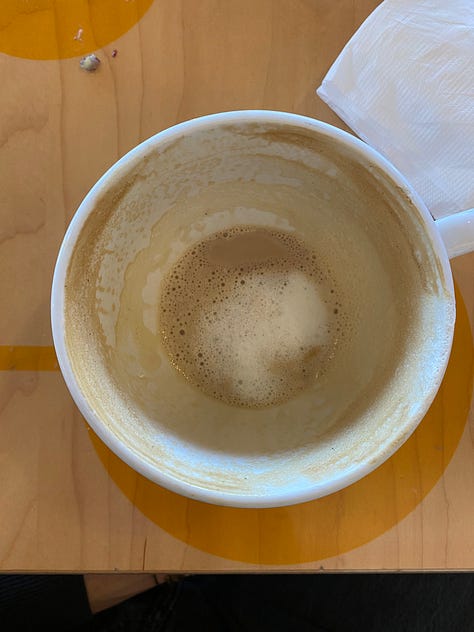
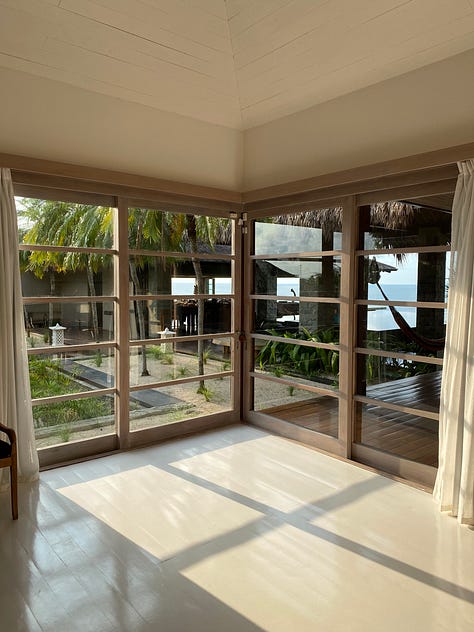
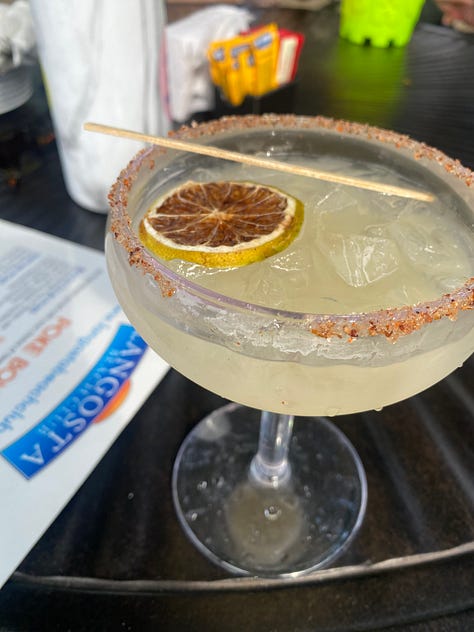
Recently, I have fallen for early morning ocean plunges, swimming while it rains, and Fourth Wing by Rebecca Yarros, because sometimes all you need is a poorly written book full of sex, sweat, and dragons. “The Otherppl” podcast episode featuring Garth Greenwell on the radical and transformative culture of cruising in America, choosing not to worry about the little things, and writing by hand. Sunkissed noses and newfound freckles, blacking out at the bookstore and buying more than one can carry, the HBO miniseries “Fellow Travelers,” “Heaven Knows I’m Miserable Now” by The Smiths, and trying to understand Umberto Eco.
That is all for now.
Until soon,
C
xx

